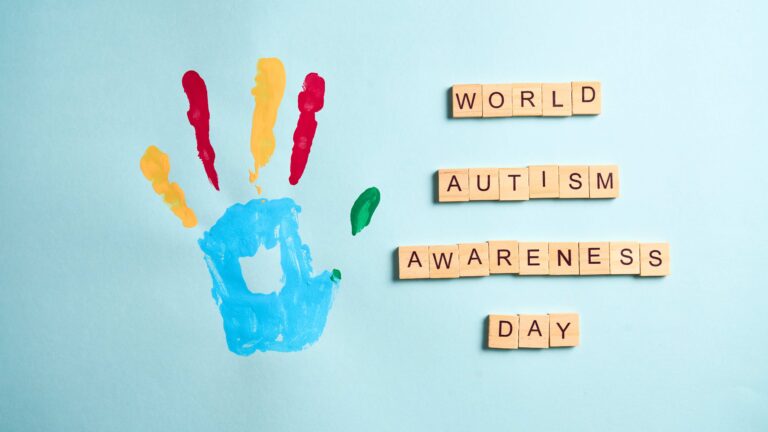Table of Contents
What is the best early intervention for autism?
Once parents and caregivers receive an autism diagnosis for their loved ones, they begin discovering new terminology and learning new ways to improve their loved ones’ lives. Understanding and applying these terms is crucial for shaping the future of children on the spectrum. Early intervention for autism is one such term that is essential for addressing this condition with appropriate programs.
At this point, it’s natural to wonder, “What is the best early intervention for autism?” With the increasing research and understanding of autism spectrum disorder (ASD), advancements in therapies, and holistic approaches, different programs aim to improve children’s social interactions, communication skills, and behavior.
In this blog by ABA Centers of Rhode Island, we will explore why early intervention is vital and how it can improve the lives of children with autism. We will delve into the various types of early intervention programs, their benefits, and how they can support each child on the autism spectrum’s unique developmental journey.
The Importance of Early Intervention in Autism

So, why does every therapist advocate for early intervention? As with any condition, the earlier treatment begins, the better the results for the future. Early intervention is crucial because it capitalizes on the critical developmental windows in a child’s early years. During this period, the brain is highly plastic, meaning it can adapt and change more quickly in response to new experiences and learning opportunities.
The National Institute of Child Health and Human Development indicates that identifying and addressing autism early can significantly improve long-term outcomes for children. Clinicians can diagnose autism before age 2, and children may show typical development before then and start to regress around age 2. Early intervention programs are most effective when started at or before preschool age, around 2 or 3 years old.
Early intervention for autism helps to address and mitigate the core challenges of ASD, such as communication difficulties, social skills deficits, and repetitive behaviors. It also fosters the development of essential skills that can support the child’s growth and integration into various social settings. By intervening early, therapists can work with children to build a strong foundation for learning, emotional regulation, and social interaction, which can lead to more positive long-term outcomes.
Early Diagnosis: The Pathway to Intervention
Why is an early diagnosis also important? The only way your child can access necessary therapies is through an official autism diagnosis. If you suspect that your child may be on the autism spectrum, obtaining a timely diagnosis is crucial. An early diagnosis allows parents and caregivers to understand their child’s unique needs and challenges and to begin appropriate interventions as soon as possible.
According to the Child Mind Institute, some early signs you should notice in your kid include:
Communication Signs:
- Less Pointing: Babies with autism may not point as much and might use an adult’s hand to communicate
- Limited Showing and Giving: They might not show or give objects to others as often, which affects their ability to pay attention to things
- Gesture + Speech: Toddlers might struggle to combine words with gestures, like saying “more” and pointing to a cup
Repetitive and Restrictive Behaviors (RRBs):
- Common RRBs: These include hand flapping, spinning, and focusing intensely on specific interests or toys
- Impact: These behaviors can make it hard for children to engage with others or switch activities
- Sensory Responses: They might have strong reactions to sensory inputs, either seeking or avoiding certain sensations, like specific textures or sounds
Behavioral Signs:
- Interaction with Objects: Young children with autism may prefer objects over people or use toys in unusual ways
- Intense Interests: They might have very focused interests, like a fascination with numbers or water
- Sensory Sensitivities: Children may react strongly to sensory experiences, either seeking them out or avoiding them
ABA Therapy to Improve Outcomes
Applied Behavior Analysis (ABA) therapy is a cornerstone in the treatment of autism, mainly when initiated early. The fundamental principle of ABA therapy is to use positive reinforcement to encourage desirable behaviors and reduce those that may be harmful or disruptive. By starting ABA therapy at a young age, children with autism can develop crucial skills that significantly enhance their overall quality of life.

Early intervention with ABA therapy takes advantage of the brain’s plasticity during the formative years. This period, as explained earlier, is when children are most receptive to learning and adapting new behaviors. ABA therapy focuses on breaking down complex skills into smaller, manageable steps, which therapists teach through consistent and structured sessions. This approach helps children to develop communication, social, and adaptive skills that are essential for their development.
For example, ABA therapy can help children improve their ability to communicate their needs, interact appropriately with peers, and perform daily living tasks independently. These skills are foundational for success in various environments, including home, school, and the community.
Additionally, early ABA therapy can address challenging behaviors by teaching alternative, more appropriate responses, which can lead to better emotional regulation and social interactions. For instance, when a child with ASD engages in stimming behaviors, ABA therapists can teach alternative exercises to manage their emotions and sensory inputs.
ABA Centers of Rhode Island and Autism Care
Early intervention for autism is essential in shaping the developmental path of neurodiverse individuals. From understanding key terms to securing an early diagnosis and applying effective therapies like ABA, each step plays a crucial role in enhancing the lives of those on the spectrum. By acting early, parents and caregivers can ensure their children receive the support they need to thrive.
ABA Centers of Rhode Island provides top-tier care for children with autism. Our team of experienced professionals is committed to delivering personalized ABA therapy programs that foster positive skills and address individual challenges. Don’t wait—early intervention can make all the difference.
Call us at (855) 922-4184 or schedule a free consultation to learn how we can support you and your child on this critical journey.








